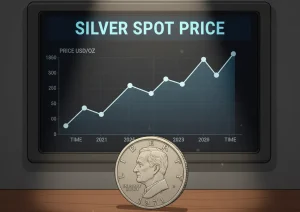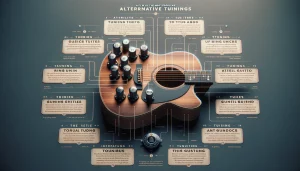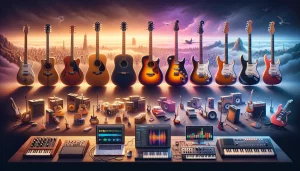Introduction to Guitar Legends and Their Impact
Why Guitar Legends Still Strike a Chord
The moment you hear the electrifying riff of Jimi Hendrix’s “Purple Haze” or the soulful wail in Eric Clapton’s guitar on “Layla”, do you feel it? That visceral connection where music transcends sound and becomes pure emotion? That’s the magic of guitar legends—they don’t just play; they evoke.
What makes these artists timeless is not just their technical brilliance but their ability to tell stories through six strings. Think of BB King, with a single note bending into eternity, stealing your heart one vibrato at a time. Or Jimmy Page, crafting entire worlds with Led Zeppelin, where every strum felt like a thunderstorm breaking open the sky.
- Chuck Berry’s duck walk redefined stage presence.
- Eddie Van Halen turned tapping into a dazzling spectacle of speed and precision.
- Joan Jett smashed stereotypes while shredding iconic punk-rock anthems.
These legends didn’t just shape the sound of their eras—they forged identities, sparked revolutions, and dared us all to dream louder. The guitar wasn’t merely an instrument in their hands—it became a voice, a weapon, a bridge to something far greater.
Pioneers of Guitar Innovation

The Boundary-Breakers of String and Sound
What happens when raw talent meets an insatiable curiosity to push limits? You get the legends who shattered norms and reshaped music forever. The pioneers of guitar innovation weren’t just players; they were alchemists, turning six strings into boundless possibilities.
Take Les Paul, for instance—a man who didn’t just master the guitar but decided it needed to evolve. His invention of the solid-body electric guitar revolutionized how the world hears music. No Les Paul? No rock ’n’ roll as we know it. And then there’s Jimi Hendrix, whose fiery performances made his Fender Stratocaster practically breathe. He flipped convention upside down—literally—playing a right-handed guitar left-handed, bathing it in feedback and distortion, and still making it sing like a choir of angels dipped in rebellion.
- Chuck Berry: Melding blues and country, he gave us the building blocks of rock with sharp riffs and unforgettable stage presence.
- Eddie Van Halen: An innovator who played the guitar like a magician, popularizing techniques like tapping that redefined virtuosity.
These trailblazers didn’t just play guitars—they reimagined them, proving that true artistry comes from daring to be different.
Cultural and Social Influence of Iconic Guitarists
![]()
The Ripple Effect of Guitar Icons on Society
It’s mind-blowing to think how a single pluck of a guitar string could ignite movements, challenge norms, and unite millions. Iconic guitarists didn’t just play notes—they shifted the cultural compass. Take Jimi Hendrix, for example. His fiery performances weren’t just musical; they were bold statements against convention. The flaming guitar at Monterey Pop Festival? That wasn’t just theatrics—it was rebellion embodied.
And what about Joan Jett? She smashed stereotypes like she did power chords, paving the way for women in rock when the industry didn’t want to listen. These legends were more than musicians; they were mirrors reflecting social change and agents sparking it.
- Bob Dylan’s protest anthems gave the ’60s counterculture its voice.
- Chuck Berry brought swagger to segregation-era America, blending black rhythm with white country influences.
- Kurt Cobain turned teen angst into anthems, making grunge not just a genre, but a movement.
Music is powerful, yes, but in the hands of these guitarists? It became a tool to challenge injustice, inspire love, or even bring hope in troubled times. Each riff told a story, each chord struck a nerve. Music changed lives—and these artists were the storytellers with six strings in hand.
Major Contributions to Musical Genres
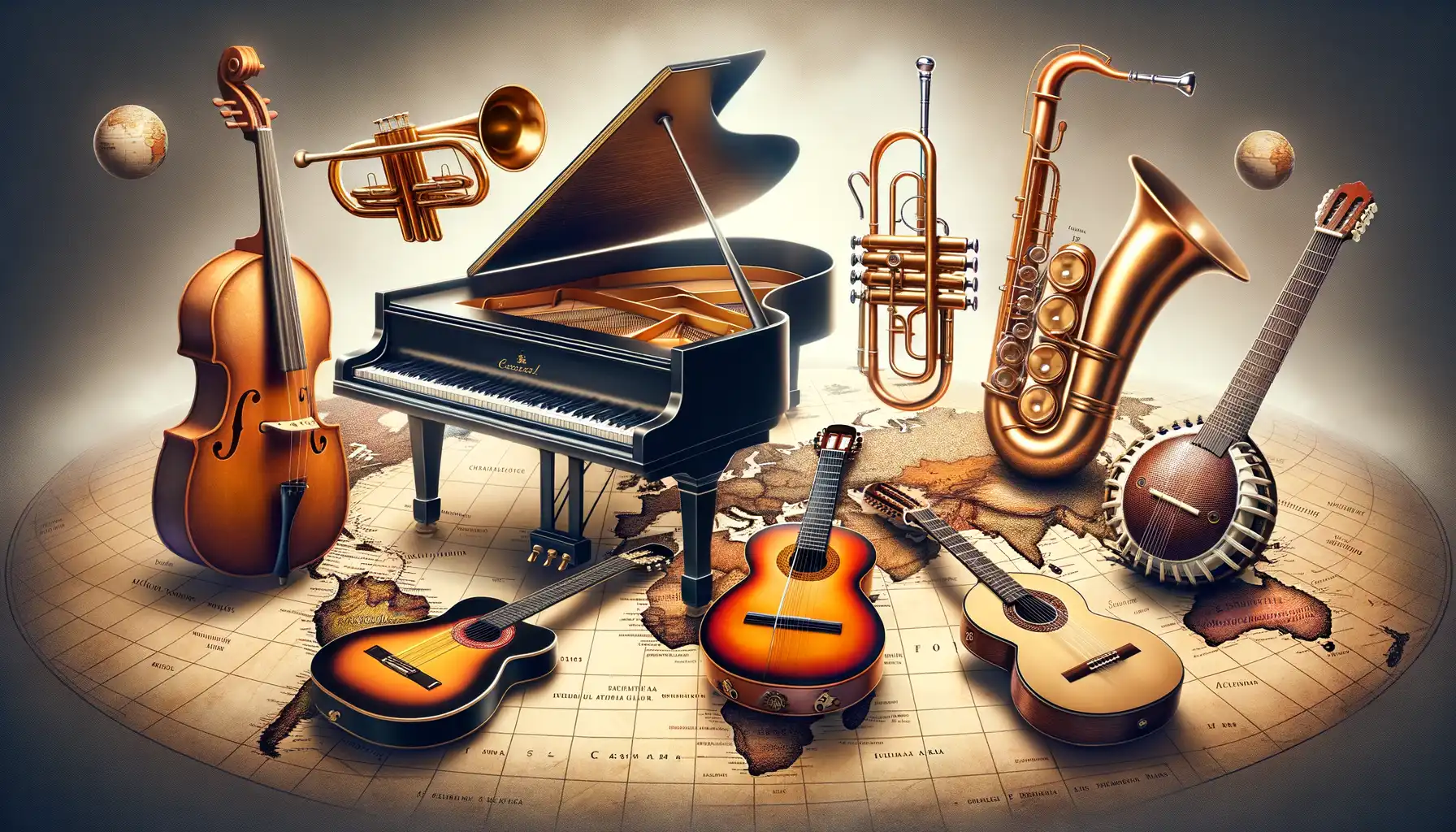
Revolutionizing Rock, Blues, and Beyond
What would rock be without the roaring solos of Jimi Hendrix or the electrifying riffs of Jimmy Page? These guitar legends didn’t just play music—they redefined entire genres. Take Hendrix: his fusion of psychedelic rock and blues was like nothing anyone had ever heard. Songs like “Purple Haze” weren’t just tunes; they were sonic explosions that sent shockwaves through popular music. Similarly, Eric Clapton brought raw emotion into blues rock—his guitar wept, sighed, and screamed on tracks like “Layla,” carving out a space for deeply personal storytelling in the genre.
Meanwhile, consider artists such as Carlos Santana. He took the intertwining rhythms of Latin music and injected them with searing guitar leads, creating a sound that pulsated with cultural identity. His track “Europa” isn’t just a song—it’s a journey. Guitarists like Kurt Cobain flipped the script entirely with grunge. It wasn’t about technical mastery anymore; it was about raw power, imperfection, and turning angst into anthems.
- Chuck Berry: The godfather of rock ‘n’ roll with his unforgettable “duck walk” and pioneering riffs.
- B.B. King: His vibrato-laden playing in songs like “The Thrill Is Gone” made him a blues titan.
From jazz fusion to heavy metal, these legends didn’t just influence genres—they created them.
Legacy and Enduring Impact of Guitar Legends
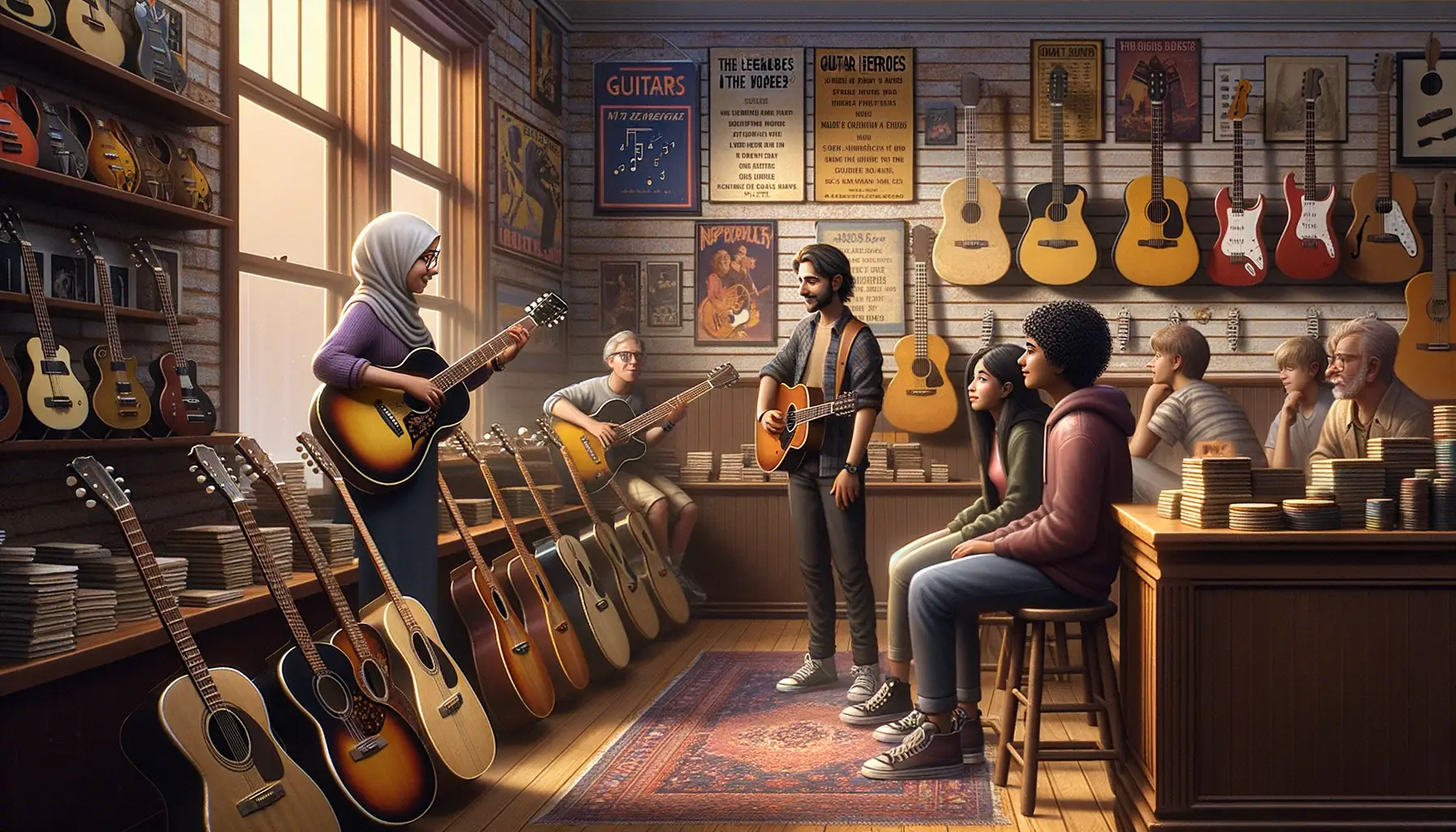
The Ripple Effect of Legendary Guitarists
The magic of a legendary guitarist doesn’t just linger—it echoes, shaping the future like ripples on a vast musical ocean. Their impact sits not only in the notes they played but in how they dared to rewrite the rules. Take Jimi Hendrix, who didn’t just use a guitar; he weaponized it, creating soundscapes that were raw, emotional, and deeply human. Or think of B.B. King, whose signature vibrato spoke more truth than words ever could.
Their legacies flow through modern guitarists like invisible threads, binding decades together. Without Chuck Berry, would rock riffs have the same fire? Without Eric Clapton, would blues cross boundaries so effortlessly? These artists laid the steppingstones for entire movements.
- They challenged norms: distortion became art.
- They inspired others: generations picked up guitars because of them.
- They transformed genres: rock, jazz, and blues will never be the same.
A Legacy Written Across Generations
You can spot their fingerprints all over music today. Listen to Jack White and you hear whispers of Jimmy Page. Watch Tom Morello shred through a solo and see Hendrix’s flames roaring anew. These legends are less like distant stars and more like constellations mapping the musical sky—a permanent guide for those daring enough to reach for greatness.


